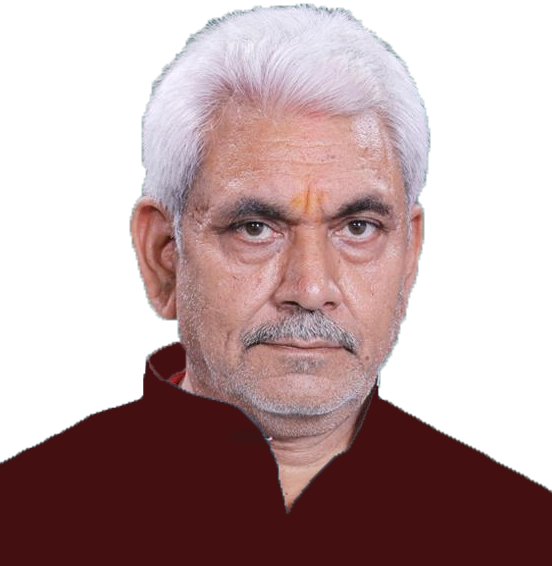 |
|
|---|---|
 |
Jammu & Kashmir |
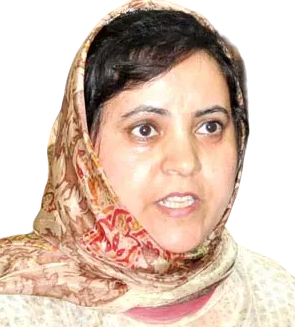 |
|
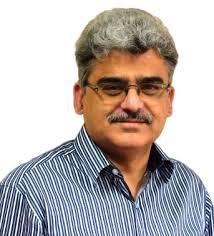 |
J & K |
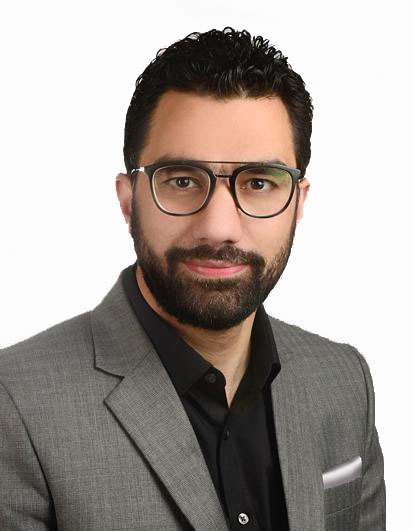 |
|
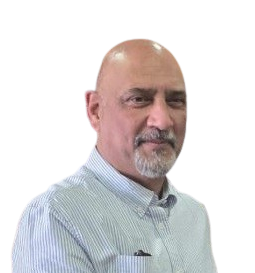 |
|
 |
Directors |

The Directorate of Health Services, Kashmir (DHSK) has witnessed a drastic progress and improvements in terms of major health indicators when compared nationally since half a decade.
In 2011 a Gap Analysis Committee was constituted at Directorate level so as to identify the areas where interventions was required in terms of providing better health care services would be accomplished in a time bound manner. Accordingly numerous efforts under a well defined Road Map & Action Plan was put in to intervene and innovate so that the peripheral health care deliverance is upgraded on modern lines.
The primary short term intervention that was felt to provide the requisite benefits was skill enhancement of the health personnel working in different hospitals. Similarly efforts in improving hospital emergencies by way of equipping them with minimum required equipment, increasing the diagnostic and surgical and other interventional services was implemented. Strategies to improve human resource management were undertaken in order to motivate, retain and supplement staff at peripheral health set up by which health care delivery has shown a considerable improvement with a special focus in the remote and inaccessible areas. Focus was also placed on enhancing the academic atmosphere of the hospitals under Directorate of Health Services, Kashmir.
The Directorate of Health Services, Kashmir (DHSK) under a well devised approach established a state of art Kashmir Skill and Simulation Centre (KSSC) at Regional Institute of Health & Family Welfare, Dhobiwan, Tangmarg to enhance the skills and competencies of health personnel (doctors and paramedics and other supportive staff) by formulating and conducting training programs including Basic Life Support (BLS), Advanced Cardiac Life Support (ACLS), Emergency Room Trauma Course (ERTC), Obstetric Skills Training and others based on modern simulation methodology. It is pertinent to mention here that Kashmir Skill and Simulation Centre (KSSC) is first of its kind in J&K and across country. The Directorate collaborated with various International Organizations like International Committee for the Red Cross (ICRC), American Heart Association (AHA), Royal College of Psychiatry, London and various others organization so to impart training programmes for up gradation of skills of health personnel working under DHSK. Since the inception of KSSC in 2013, a total number of 543 doctors have been trained in Emergency Room Trauma Course (ERTC), 247 doctors have been trained in Advance Cardiac Life Support (ACLS), 734 doctors/paramedics have been trained in Obstetrical Skill Training, 1510 doctors/paramedics in High Altitude Sickness Management and 4723 doctors / paramedics in Basic Life Support (BLS) till September 2017. In addition to it the directorate evolved the organizational structure of Academic Activities wherein routine CMEs, skill development & capacity building workshops are being organized at District & Divisional Levels which is helping in upgrading skills of Doctors, Paramedics & Supportive staff. The Department has recently launched a BLS pilot project wherein 500 trainers will be made who will impart BLS training to various stakeholders and general public in their health blocks and by doing so the Directorate of Health Services, Kashmir will be a pioneering department to impart BLS training to whole community which will be a huge advantage in treating/managing emergencies/road traffic accidents/trauma. A total of 7000 persons (within and outside the department) have been trained till July 2017 in BLS which apart from our own staff the department has imparted various stakeholders under outreach programme. Besides this, the Master Trainers for Basic Life Support have been imparting BLS to various school children, college students, journalists and even have imparted training to Srinagar International Airport staff twice.
While augmenting the facilities being provided at peripheral hospitals, various high end equipments like CT Scan Machines, Advance USG Machines, Harmonic Scalpel systems, Multi - para monitors, Laparoscopes, Advanced Anesthesia work stations, Transport ventilators, Oxygen concentrators, Cardiac Defibrillators, Syringe infusion pumps, C-Arm intensifiers, Haematology Analysers, Transport incubators, Video Endoscopic Labs, ELISA Readers, Digital X-Rays etc. have been made available at the level of District as well as selected Sub District Hospitals along with required manpower for the first time in the peripheral health set-up since 2012 onwards with an aim to improve the quality interventional, surgical, laboratory and diagnostic facilities across Kashmir. As regards the work done performance of the institutions have almost doubled over a period of 06 years from 2009-10 to 2015-16.Apart from routine major general surgeries, more than 15000 Laparoscopic Surgeries have been conducted till date which include advanced Laparoscopic procedures using harmonic scalpels. Moreover advanced surgeries like Spinal Surgeries , Onco-surgeries, Neuro-surgeries and Advanced Orthopaedic Surgeries are being now routinely performed across all District & selected Sub District Hospitals.
Specialized Theatre Units have been established across all District & Sub District Hospitals. Moreover a dedicated Minimal Access Surgical Unit and Onco-Surgical Unit has been established at JLNM Hospital, Srinagar while as a dedicated Oro Maxillofacial Surgical Unit (OMFS) has been established at District Hospital Baramulla. The OMFS unit is the first of its kind unit established in peripheries outside Govt. Dental College, Srinagar. Such initiatives have proven to be a big relief to the needy patients living in rural areas. And thus the drift of patients towards the tertiary care hospitals has been reduced to a larger extent and the time frame of listed surgeries has reduced considerably in peripheral hospitals
• Collaboration with the team of Plastic & Reconstructive Surgeons from INTERPLAST-Germany who are routinely holding training workshops in JLNM Hospital since May 2013 , have performed more than 250 reconstructive surgeries in Kashmir besides training our surgeons.
• Signing of MoU with Royal College of Psychiatry, UK for conduction of Mental Health Gap trainings by Dr Peter Hughes, Consultant Psychiatrist, Dr. Sally Browning, MB, ChB, FRC Psychiatry, Dr Eleni Palazidou MD, PhD MRCP FRC, Psychiatry & Dr. Sophie Thompson Consultant Psychiatrist as per World Health Organization protocols to overcome the shortage of Psychiatrists and to address the mental health issues prevalent in the State.
• The evolving mechanism to improve health care faced the big challenge when Kashmir witnessed devastating floods in September 2014.The management of health institutions of Kashmir Division was of immense challenge as all the major hospitals of Srinagar city including Tertiary level institutions (who otherwise catered to a huge rush of patients), were deluged and closed for nearly 40 days. The people of Kashmir Division were medically attended to by the institutions under the administrative control of Directorate without any reported death or patients who were left medically unattended.
• The Directorate faced yet another challenge during the recent law ansd order problem which erupted in Kashmir valley in 2016 that created a similar sort of situation like in September 2014. Keeping the Hospitals functioning with provisioning of manpower and supplies when stringent restrictions were in place and movement of even the ambulances was limited to a considerable extent which was challenging to say the least. It is worthwhile to mention here that even the logistics that were required to be in place for provisioning of the medical services during this year’s Shri Amarnath Ji Yatra were effectively managed in-spite of the prevalent situation. During this period, the peripheral health institutions under the administrative control of Directorate of Health Services, Kashmir which include the District Hospitals, Sub District hospitals and major Primary Health centers of Kashmir Division were able to cater to the demands of Trauma care in the violence hit areas of valley.
• It is also worth to place on record that the Department of Health, Government of J&K was adjudged as the “Best Performer in Healthcare” in the State of States Award based on healthcare indices among the states of the country. The India Today Survey ranked J&K as best managed state in the Country in 2011-12 and 2014-15 during my tenure as DHSK. A large measure of the improvement was due to the efforts put in by me in streamlining the Administrative setup during his tenure which was appreciated by successive Chief Ministers of the State.
• The department also achieved one more feather in cap at Best Practices 3rd National Summit on Good and Replicable Practices and Innovations in Public Health Care Systems held at Tirupati, Andhra Pradesh under Practices and Innovations in Public Health Care. The best practices which were rewarded nationally were:
a) Unique institutionalization of ASHA programme
b) Info graphics for Disease control (IDSP – Kashmir)
• Directorate of Health Services, Kashmir (DHSK) achieved yet another feat nationally when Kashmir Skills and Simulation Centre (KSSC)-Trauma and emergency management program was adjudged as one of the best practice at4th National Summit on Good, Replicable and Innovative Practices in Public Healthcare System in India, Indore, MP. The event was organised by Ministry of Health and Family Welfare, Government of India. The establishment of KSSC has been shortlisted as one of the best practices in country among the three best practices from J&K by Ministry of Health &Family Welfare, GoI and this achievement has brought immense laurels to the State Govt. and Directorate of Health Services, Kashmir (DHSK) at national level.
The other two best practices that were selected from Jammu and Kashmir State included (i) Role of Facility Based new born Care in reducing IMR in the State, and (ii) Screening and Orientation of ASHAs on NCDs.
In addition to this the newer initiatives/accomplishments which the Directorate accomplished during the current year include the following:
The Directorate of Health Services, Kashmir has been proactive in innovating and is keeping the Administrative Department aware of the evolving requirements of healthcare service delivery mechanisms and contemporary means by which the health setup of Kashmir Division can keep the pace with the expectations of the public. Over the years, proposals (some of which are now being incorporated in the National Health Policies and programmes), have been discussed and some are being incorporated/or in pipeline in the State.